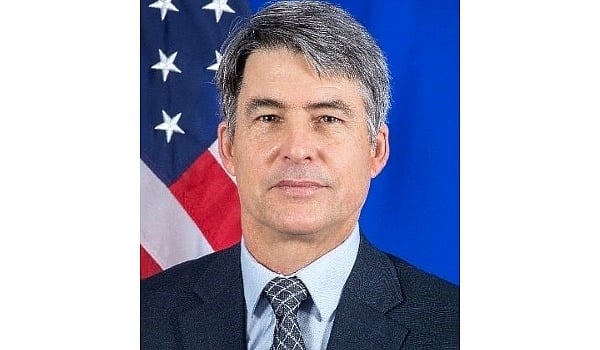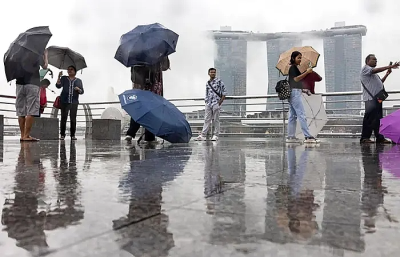
Climate change is already having significant impacts on people and nature, and these impacts will only worsen if we do not reduce emissions and increase adaptation quickly. Malaysia has seen the adverse effects of climate change through extreme flooding in many states. It caused RM 6 billion in damages from December 2021-January 2022 alone. The United States is seeing serious effects too. Unless all nations take drastic and immediate action to limit global temperatures, the projected sea level rise in Southeast Asia will mean that Malaysia will lose fisheries, homes and farms, tourism jobs and revenue and lost business from damaged ports.
Bold action to tackle the climate crisis is more urgent than ever, and everyone must do their part. For me, as the U.S. Ambassador here in Malaysia, climate action is my top priority, and my team and I are always striving to foster deeper connections between U.S. experts and Malaysian officials, businesspeople and others seeking to make a difference for our planet.
There are important initiatives coming out of the United States to combat climate change and the United States and Malaysia are teaming up together on climate action, including in the Indo-Pacific Economic Framework. At a number of speaking engagements, I have encouraged students and others to think about how each one of them can become active within their community and with the newly elected government to address the climate crisis.
We have to combine powerful personal action with ambitious policy initiatives and incentives. The United States has significantly increased investment in renewable energy technologies over the last decade, supported by robust incentives for wind and solar. In California, for example, renewable energy provided nearly half of
total electricity in 2021. One of the strongest tools the United States is utilizing to solve the climate crisis is the Inflation Reduction Act, which is providing US$ 370 billion to supercharge investment in solar and wind energy, battery storage, and many other technologies, driving innovation through public-private partnerships. As President Biden noted in November, this will “help make the transition to a low-carbon future more affordable for everyone.”
Malaysia and the United States can capitalize on this momentum to work together to combat climate change. Rapidly mitigating methane emissions is critical to avoid near-term warming because methane is among the most potent greenhouse gases. At the Methane Ministerial organized by the United States, Special Presidential Envoy for Climate Kerry noted that 95 percent of global Nationally Determined Contributions now include methane and 50 countries have developed national action plans to control methane emissions. I was glad to learn recently that Petronas is already taking significant steps to reduce methane emissions in Malaysia and at its operations around the world. We are eager to partner with Malaysia on further methane reduction initiatives.
When Secretary of State Antony Blinken visited Malaysia last year, he sat down with leaders from Malaysia’s energy sector to discuss renewable energy. The main questions raised at that session revolved around Malaysia’s energy resources and needs: how will Malaysia reduce its reliance on coal for electricity and increase its share of renewable energy, particularly solar – including by both developing the electricity grid and the regulatory framework? The United States is committed to working with the new Malaysian government to address these questions, through regulator-to-regulator cooperation and through cooperation with the private sector.
Malaysia, with its world-class rainforests and biodiversity, can also contribute to the global action on the climate crisis by continuing efforts to reduce deforestation. Through the signing of the Glasgow Declaration on Forest and Land Use, we have seen Malaysia’s commitment to preserving its tremendous natural resources. Malaysia and the United States should explore ways to conserve, restore, and sustainably manage Malaysia’s rainforests, mangroves, peatlands and other natural treasures.
I want to close with a Malaysian story of adaptation and resilience that I find particularly inspiring. In 2007, the government of Malaysia completed construction on the Stormwater Management and Road Tunnel (SMART) tunnel, investing RM 1.8 billion to adapt to the changing climate. This was a controversial investment at the time, but one that has paid dividends, as the tunnel handles 30,000 cars per day and has been used more than 44 times to divert floodwater.
Fighting climate change will sometimes require tough choices and tremendous investments. Through the SMART tunnel and other innovations, Malaysia has shown that it can dream big and act on those dreams. I still believe we can all dream big, that our bravest, boldest imagination can take us far towards a future worth passing down to our children and their children.
(Brian D. McFeeters is the United States Ambassador to Malaysia.)
ADVERTISEMENT
ADVERTISEMENT







































